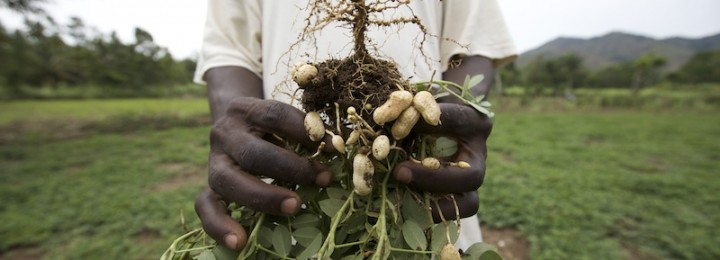Peanut & Mycotoxin Innovation Lab
-

IBP Training Brings Crop Breeders to University of Georgia February 26, 2015 Writer: Christy Fricks, christyfricks@uga.edu Contact: Dave Hoisington, davehois@uga.edu On February 24-26th the Integrated Breeding Platform held a training workshop for the Breeding Management System (BMS) at the University of Georgia College of Agricultural and Environmental Sciences. The training was hosted by the Feed…
-
The Feed the Future Peanut & Mycotoxin Innovation Lab (PMIL) invites and encourages all Lead Scientists, Collaborators, Feed the Future Innovation Labs and Partnering Institutions involved in mycotoxin research, to invite their collaborating laboratories to participate in a survey, “Capability and Capacity Questionnaire of Mycotoxin Testing Facilities.” The objective of the survey is to learn…
-
“Groundnut Seed Production Manual for Uganda,” authored by David Kalule Okello, Patrick Okori, Naveen Puppala, Boris Bravo-Ureta, Carl Michael Deom, Jane Ininda, Paul Anguria, Moses Biruma and Cresensia Asekenye is now available for download on the Peanut & Mycotoxin Innovation Lab (PMIL) website. Groundnut (peanut) is one of the staple crops in Uganda, rich in protein,…
Posted in: News -

Partnership is Good for Peanut Production in Haiti Published January 29th, 2015, Feed the Future Peanut farmers in the Peasant’s Association of Savanne Longue in Haiti had a very productive 2014 growing season. In part, this was the culmination of years of collaboration between an array of government, university, civil society, and private sector partners on…
-
On behalf of the entire research and management team, it is my pleasure to present the Feed the Future Innovation Lab for Collaborative Research on Peanut Productivity and Mycotoxin Control Annual Report for Fiscal Year 2014 (FY2014). Otherwise known as the Peanut & Mycotoxin Innovation Lab or PMIL, we are in our second year of…
Posted in: News -
Not long after aflatoxin was discovered and methods were developed for analyzing commodities for contamination levels, researchers and the industry quickly realized there was a problem. “I would get a call from the industry explaining that they had tested the same lot three times and gotten 0, 0 and 100 parts per billion (ppb). What’s…
Posted in: News -
As part of the Norman E. Borlaug International Agricultural Science and Technology Fellowship Program, two visiting researchers are working to ensure the safety the peanut crop in Africa with the help of the University of Georgia College of Agricultural and Environmental Sciences. The college’s Office of Global Programs hosted the researchers, Agnes Mwangwela from Malawi…